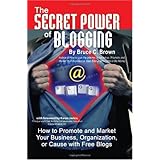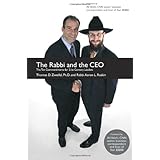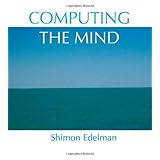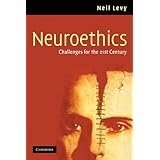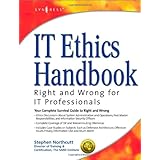
Average Reviews:

(More customer reviews)Are you looking to buy IT Ethics Handbook: Right and Wrong for IT Professionals? Here is the right place to find the great deals. we can offer discounts of up to 90% on IT Ethics Handbook: Right and Wrong for IT Professionals. Check out the link below:
>> Click Here to See Compare Prices and Get the Best Offers
IT Ethics Handbook: Right and Wrong for IT Professionals ReviewOver the last couple of months, I've been reading a book titled IT Ethics Handbook by Stephen Northcutt (Syngress). I'd like to say I spent all that time examining ethical issues, when in reality it was just a hard book to finish...Chapter list: System Administration and Operations; Audit; Vulnerability Disclosure; Digital Postmaster; E-mail Scams; Information Security Officers; Programmers and System Analysts; Database Administration; Information Service Providers; Brother's Keeper; End-user and Employee Computer Security; Customer Ethics; Trusted Assistant; Ethics and Contractors/Consultants; Telecommuting and Mobile Computer Security; Personal Computer Users; Penetration Testing; Content Providing; Privacy; Management/Employer Ethics; Conclusion
Each chapter is made up of a brief discussion of ethical matters in that particular area, followed by vignettes where you have to figure out what you'd do. The author gives a "conservative" and "liberal" answer to the dilemma, followed by a summary of what they consider the right answer to be. While there's some benefit to be gained from thinking through some of the scenarios, the content is just far too uneven and in some cases irrelevant. It took me a number of attempts to find where the author explains what is meant by the conservative and liberal "answers". They are so extreme as to be comical in some cases. Apparently the author uses them as "guardrails" to set the boundaries of the issue. Even then, the author's answer is often too liberal for my tastes or just wishy-washy. In one scenario, the question is asked if IP spoofing is acceptable if it causes no damage (since it's a way for super hackers to show off). The author feels that at best it helps shore up security, and at worst it eats up resources and causes destruction. So what? Is it right or wrong?
In the Personal Computer Users area, the first scenario is being unable to stop playing FreeCell when your husband asks you to come to bed and not play past midnight. For the life of me, I don't see how this has anything to do with IT ethics. The whole Trusted Assistant chapter has nothing to do with IT. It's basically about what an administrative assistant should or should not be able to do. Fine for general business, out of place for IT ethics. And as a final nit, the chapter on Information Service Providers has the term misspelled at the top of each page ("Information Sercive Providers").
While it's possible to get some value from this book, I feel it could have been much better.IT Ethics Handbook: Right and Wrong for IT Professionals OverviewThe target audience for this book is any IT professional responsible for designing, configuring, deploying or managing information systems. This audience understands that the purpose of ethics in information security is not just morally important; it equals the survival of their business. A perfect example of this is Enron. Enron's ultimate failure due to a glitch in the ethics systems of the business created the most infamous example of an ethics corporate breakdown resulting in disaster. Ethics is no longer a matter of morals anymore when it comes to information security; it is also a matter of success or failure for big business.*This groundbreaking book takes on the difficult ethical issues that IT professional confront every day.*The book provides clear guidelines that can be readily translated into policies and procedures.*This is not a text book. Rather, it provides specific guidelines to System Administrators, Security Consultants and Programmers on how to apply ethical standards to day-to-day operations.
Want to learn more information about IT Ethics Handbook: Right and Wrong for IT Professionals?
>> Click Here to See All Customer Reviews & Ratings Now
